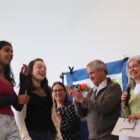
The third annual ReThink Waste Fair featured a fashion show from the “OR Blue Wrap Upcycled Project.” Continue Reading →
Greenwich Free Press (https://greenwichfreepress.com/tag/sarah-coccaro/)

The third annual ReThink Waste Fair featured a fashion show from the “OR Blue Wrap Upcycled Project.” Continue Reading →
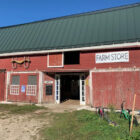
This will be the sixth and last panel of the Greenwich Food System Forum (GFSF). The webinar is free, and will be held virtually through Zoom, on Wednesday, November 30 starting at 7:00pm. Continue Reading →
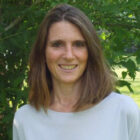
The webinar is free, and will be held virtually through Zoom, on Wednesday, September 21st starting at 7:00pm. Continue Reading →
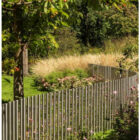
Lawns don’t sequester carbon, manage the watershed, support a food web and pollinators, prevent erosion and flooding, or oxygenate our air. Their maintenance produces more greenhouse gasses than they absorb, and they are ecological dead zones that contribute to the die-off of insect populations. Continue Reading →
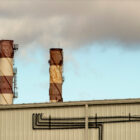
Waste Free Greenwich invites the Greenwich community to a free screening of The Sacrifice Zone, a 30-minute documentary focusing on the efforts of community activists to fight against environmental injustices in the Ironbound neighborhood in Newark, NJ, one of the most toxic communities in the country. Continue Reading →
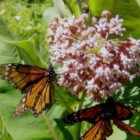
Coccaro will share tips for enhancing wildlife habitats and supporting pollinators while using native vegetation to deter pests. Continue Reading →
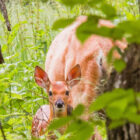
Also, Sarah Coccaro, Conservation Resource Manager for Greenwich Conservation Commission, will talk on April 7 about ways to use native vegetation to deter pests. Continue Reading →
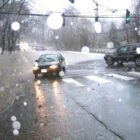
This is the second article in the Greenwich Sustainability Committee’s “One Water” weekly series. Written by Sarah Coccaro, Conservation Resource Manager, Greenwich Conservation Commission, member of the Land and Water sector of the Sustainability Committee
The seasonality of the Northeast is central to the region’s sense of place. Yet, earlier springs and milder winters are changing ecosystems and environments in ways that adversely impact commerce, recreation, tourism, agriculture, industry and livelihoods. Global warming alters nearly every stage of the water cycle; from precipitation, evaporation, surface runoff to stream flow. These changes put pressure on drinking water supplies, food production, property values, and our quality of life. Continue Reading →